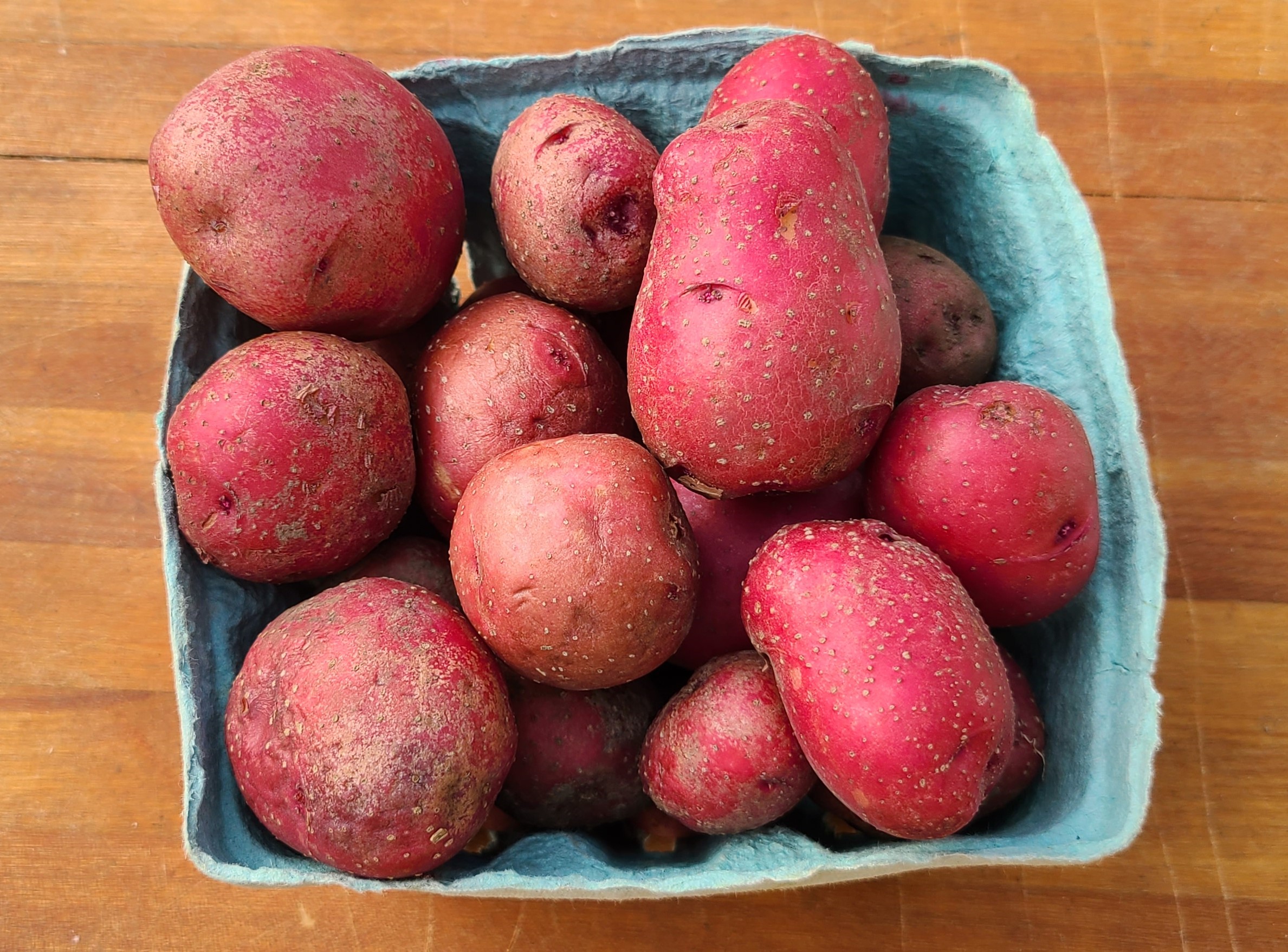Local vs Organic vs GMO - Why Buying Local is the Right Choice for You

I used to be one of those people in the grocery store who wouldn't pay $0.20/lb more for organic bananas. Even as a personal trainer, as I educated my clients on the importance of eating their fruits and veggies, I never fully understood why organic and/or locally grown was superior. I often lamented that, if they couldn't afford organic, that was okay! At least they were making healthier choices.
Thank goodness I have the self-awareness to know when I'm wrong and the audacity to admit it.
Not only is organic superior and safer, I would argue that LOCAL is just as important, if not more so, than organic. And if you can have both? Creme de la creme!
Fruits and vegetables begin losing their nutrient density as soon as they are plucked from the ground, tree, vine, etc. Those strawberries you're eating in the dead of winter? Not only do they lack the flavor we really want and love, they are lacking (to say the least) in nutrients as well. Most have traveled thousands of miles, endured temperature changes, been exposed to artificial light sources, and were washed with chemicals to increase their shelf life and insure they made it to the grocery store in time to not rot. Spoiler alert : Not moldy DOES NOT mean fresh.
Some argue that the pandemic was the main catalyst for the increase in demand for locally-sourced food products. However, this trend has been gaining momentum for the past 20 years. In 1994, there were fewer than 2000 farmer's markets listed on the National Farmer's Market Directory. Today, there are nearly 9000. A simple search for my own zip code (67230) yielded 8 farmer's markets within 10 miles! While nutrient levels in the soil declined, farmers and agriculture specialists across the country put their heads together to answer the conundrum of poor soil quality and in turn poor produce quality. The results? More local farmers, smaller in scale, using sustainable agricultural practices with an emphasis on soil quality and preserving land for future generations.
Why should I buy local?
It's safe to say that getting your hands on locally grown produce and meats is now easier than ever. But it's still not as convenient as taking a trip to your local Kroger store, and that's enough to deter a majority of shoppers. So what other benefits, besides nutrient dense foods, can shopping local give you (as the end consumer)?
- Support your local farmers and help grow your local economy
- Cut transport energy costs and reduces food waste
- Find new foods to try which will increase the range of antioxidants and phytonutrients (#health!)
- More flavor - fresher food just tastes better
- Better for the economy and the environment (and as a responsible citizen, that's what we're all after)
- Better food safety - fewer steps between the ground to your table means less chance of contamination



So what are we to do as consumers, in the Midwest, landlocked and freezing for 4 months of the year?
Seeking out local food sources is a great place to start. This might require a little extra effort on your part and include things such as :
- Going to the local farmer's market each weekend. Even in the dead of the winter, The Wave was hosting a market each weekend this past year.
- Opening your mind to the variety of produce available at different times of the year. Eating seasonally is a great way to insure you are taking in the most nutrient dense food available. It's also a great way to expand your culinary experiences and diversify our nutrient intake (SUPER important for not just preventing disease, but for those of us wishing to pursue OPTIMAL health).
- Spending a little more money. Local and organic produce may be more expensive, but think about the amount of time and effort a small farmer put into one tiny bundle of herbs. With no machinery and no pesticides and chemicals to help, each product is lovingly hand preened and picked and then packaged by the farmer to be delivered to you, all within 24-36 hours. You can also take heart in knowing that your money is going right back into your local economy. #ShopLocal
- Educating yourself on the growing practices of your local farmer and learning why sustainable farming practices are so important.
We hope this article has made you consider your options when debating on locally sourced vs GMO, non-local produce and foods. As always, feel free to comment below and let us know your questions and concerns. Our mission at Rommey Farms is to serve and feed the community to the best of our ability while using sustainable agricultural practices and contributing to our local food system and economy.

